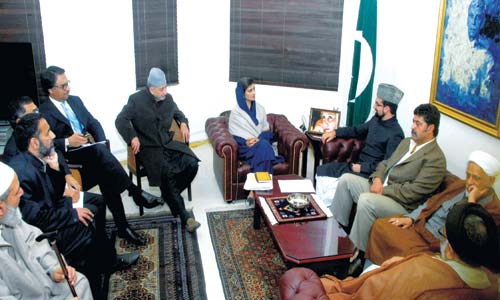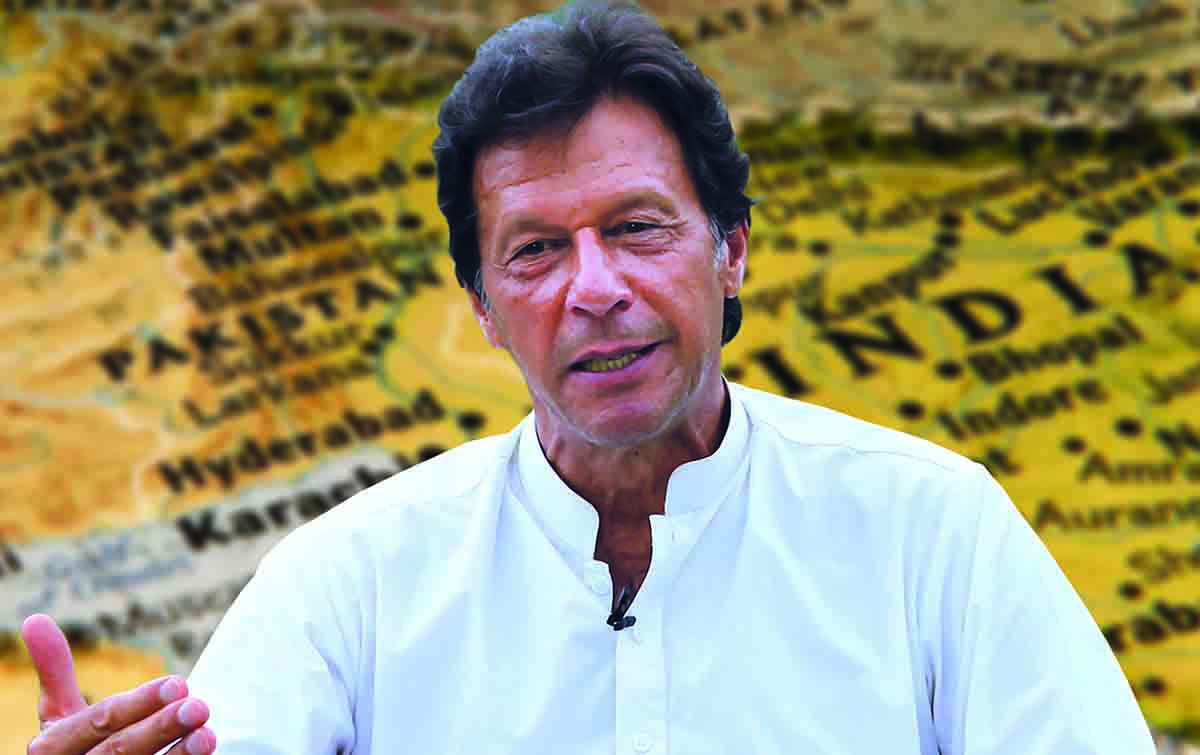by Huma Sadaf
Pakistani politics has been using the Kashmir card since the creation of Pakistan and there have been hardly any exceptions. The noteworthy point in Imran Khan’s campaign through the years has been that he never used this card—well, at least never the way it had been used before. In his July 26, 2018, ‘victory speech’, again, Khan maintained the same pattern when he spoke of the bilateral issues, with all the neighbours, to be taken care of and resolved through peaceful means and spoke of regional trade ties.

“I am a person who arguably knows the most people in India because of my days in cricket,” Khan said. “We can resolve the poverty crisis in South East Asia. The biggest problem is Kashmir.” He suggested that the two sides should come to the table to resolve it.
On this point what Khan has said is really important and needs to be taken in notice because it certainly gives hints about the possible policy-building process that his government will like to follow. But, at the same time, the things that he has not said (or avoided) are equally important and need to be marked.
Not once in his whole speech did he talk about dealing with opponents or neighbours with iron hands, neither did he use tough words about any conflict that Pakistan is facing. Specifically talking about Kashmir, Khan mentioned the human rights’ violations and atrocities that Kashmir has been facing for decades now. He did not hint about a military solution, rather he spoke about bringing the government of India to the table and looking for a peaceful solution to the problem, that is less blood shedding and more suitable for people of all three parties, India, Pakistan and Kashmir.

It is worth noticing that Khan has maintained a non-confrontational approach towards India, throughout his campaign. “Indian media has converted Nawaz Sharief into a victim. I want to ask the people of India that what I have done to them. I also say that we must have a friendship with India,” Khan said in his last campaign speech in Defence Housing Authority, Lahore, that houses the upper middle class, upper class and military elite, “But I also say that suppression of Kashmiris must end.”
He went on to add: “what have the people of Mumbai done to me or Pakistan that we will draw policies against them?”.
This shows a very clear line of non-offensive manner to deal with the bilateral issue especially with India that is projected as the enemy state by every politician when it can serve them. Strong anti-India political factions have been provoking the anti-India sentiment for decades now as a result of which they have got some grip over the masses. One very common sentence that has been used by every politician for a long time in Pakistan “Kashmir Pakistan Ki Shah Rag Hai” (Kashmir is Pakistan’s jugular vein) could have gained Khan brownie points among those sections and their followers, but he very carefully avoided it.
A significant number of people who turned against PMLN during these elections had even mentioned it that they had pulled their support because of (a) Khatm-e-Nabuwwat clause being proposed to be eliminated from the oath of office, (b) the direct relations with India.

There are some radical parties in Pakistan such as Milli Muslim League which are completely focused on India and Kashmir issue and ignore anything beyond it. Another religious party Tahreek Labaik Pakistan (TLP), they are more focused on Khatm e Nabuwwat (finality of prophethood). Both parties had campaigned according to their political agenda and they garnered the support as well, but the results quite clearly show that the masses are focusing on bigger problems such as economic growth, poverty alleviation and unemployment, all of which Khan has promised to give special treatment to.
Another religious party that has been seen in power for the past many years is Muttahida Majlis e Amal (MMA). The party is mainly drawn to power by whichever means and issues possible. If the Kashmir issue was not taken by most of the political parties, they would not bring it up for the time being. Yes, they have a clear line on ties with the US and have been very anti-America, always.
The people have by and large rejected these parties and their agenda because the economic crunch and bad situation of public utilities such as electricity, sewerage and terrorism grab the larger part of their attention. PTI has also promised to address Kashmir issue but on a much logical level and less bloody manner.
Khan-led government is expected to be having a different approach towards India and Kashmir than their predecessors. PPP and PMLN have used the Kashmir card for their internal political gains inside Pakistan but not much has been done in this regard on the international level.
The League has been putting the blame on the army and intelligence agencies for their failure. But by now, most of the voters have understood that they cannot pass the buck. On the other hand, the PMLN government did not appoint a proper foreign minister which showed the non-seriousness of the administration. The new administration sounds quite responsible because they have been hinting about their possible choice for foreign, and finance ministers, already.
In addition to other blunders that the previous government has made during their tenure, rather than appointing serious ambassadors they promoted the secretarial level staff to the ranks of ambassador. The staff certainly lacked the qualification and expertise and could not defend their country properly.
Khan also very clearly mentioned CPEC and he also mentioned investment possibilities and regional ties. Speaking of trade with India, he might have hinted that north India can have a much better business opportunity with China through Pakistan which is a win-win situation for both sides. While you are promoting trade ties with a neighbour, having a vital issue like Kashmir unresolved, puts a lot on stake and uncertainty is the biggest enemy of the investment opportunities.
PTI has lot many political veterans on Khan’s disposal such as Shah Mehmood Qureshi who has spent his term as a foreign minister, already and is expected to be chosen for another. But nothing can be said with certainty. Ayaz Amir believes Shah Mehmood’s experience as a foreign minister was not as fruitful in building a good portfolio despite his own son working with John Carry’s office he failed to get any relaxations for the nation.
PTI has many choices. Khar family has joined PTI before the elections but the former foreign minister Hina Rabbani Khar grabbed quite some limelight in her time. She did not contest elections and may be nominated to the House or may contest from one of the four seats that will get vacant soon. Imran Khan won from five seats and four of them will get vacant.
Similarly, Khursheed Mehmood Kasuri is also part of PTI but did not contest the general elections.
Situation will get clear once the new dispensation takes over. Khan has given a clear line for his government’s policies in his victory speech which clearly states optimism about soft borders with Afghanistan, strong trade ties with India, regional stability, Kashmir issue’s sustainable solution and especially the mention of the atrocities that the Kashmiri people have been facing for last three decades.














